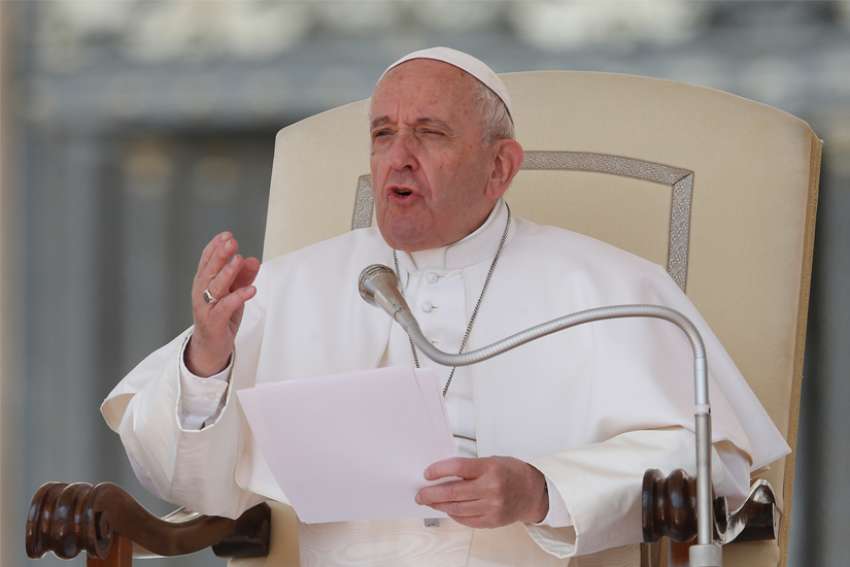"Human life is sacred and inviolable and the use of prenatal diagnosis for selective purposes must be strongly discouraged because it is the expression of an inhuman eugenic mentality, which deprives families of the possibility of welcoming, embracing and loving their weakest children," the pope said May 25.
Addressing participants at a Vatican meeting on medical care for "extremely fragile" babies and on the pastoral care of their parents, Pope Francis said the Catholic Church's total opposition to abortion is not primarily a religious position, but a human one.
"Just two phrases, two questions, can help us understand this," the pope said. "First question: Is it licit to eliminate a human life to solve a problem? Second question: Is it licit to hire a hitman to resolve a problem?"
"No," he said, "it is not licit. Never ever eliminate a human life nor hire a hitman to resolve a problem."
When there is a prenatal diagnosis of serious illness or disability, the parents need medical staff and pastoral workers to be close to them and support them, the pope told participants at the conference sponsored by the Dicastery for Laity, the Family and Life.
While some may define the baby's condition as "incompatible with life," he said, the fact that there is movement and that the mother knows she is pregnant means there is life and the mother's experience of that must be honored.
Every child conceived in a mother's womb "is a gift that will change the story of a family, a mother and father, grandparents and siblings," he said. "And this baby needs to be welcomed, loved and cared for."
"When a woman discovers she is expecting a baby, she immediately experiences a profound sense of mystery. Women who are mothers know this," he said. "The awareness of a presence that grows inside her pervades her being, making her not only a woman, but a mother."
The baby insider her, he said, immediately becomes a son or daughter.
When a prenatal diagnosis reveals that the child has a malformation or illness the serenity of the parents is disturbed and the experience of pregnancy changes, the pope said. "The sense of solitude and impotence and the fear that the baby and the whole family will suffer emerge as a silent cry, a plea for help."
Fortunately, he said, advances in prenatal medical treatment are starting to catch up with the ability to make prenatal diagnoses. And even in cases where there is nothing doctors can do to heal the child, more services exist to assist parents of children with disabilities or to provide hospice care to newborns who are not expected to live. Those services, the pope said, must be made more widely available.
When it is likely the baby will die, Pope Francis said, many people assume that the parents' suffering will be lessened if the baby is aborted. But welcoming the child, holding him or her and giving comfort and love helps bring "completion to a family's love."
"In fact," he said, "taking care of these babies helps the parents work through their mourning and understand what happened not only as a loss, but as a stage of a journey taken together. That baby will remain in their lives forever, and they were able to love him or her.
"Many times those few hours that a mother was able to cradle that baby leaves a trace in her heart that she will never forget," the pope said. "She feels like a mother."


